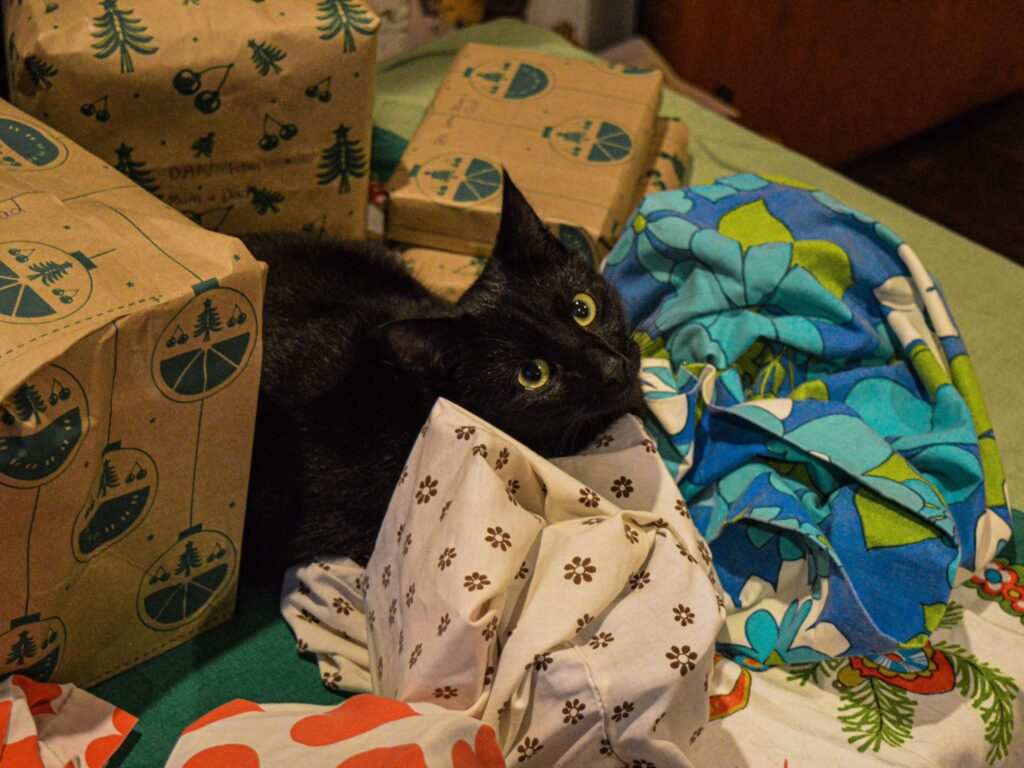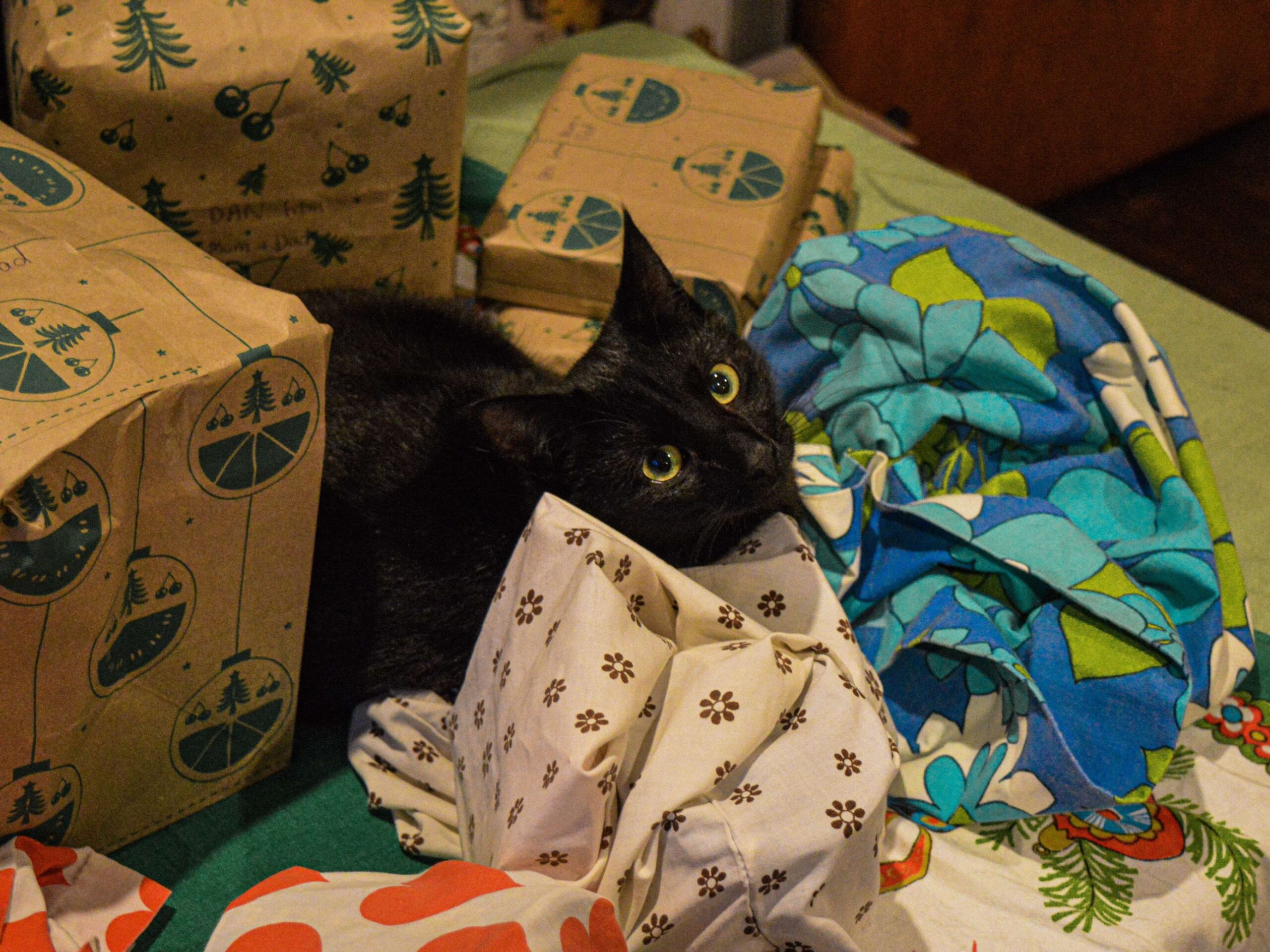
Christmas has been and gone, and most of us are now in possession of a fridge full of leftovers and perhaps a spare room full of interstate relatives. If you’re one of the lucky ones who also gained a new computer this season, you might be wondering what you can do about the old computer it replaces.
You could just stick it in a cupboard, but do you need more clutter? On the other hand, chucking a whole computer in the bin seems wasteful, and can be pricey if you don’t have a local free e-waste disposal service. Passing it on to someone else, whether to a younger relative or a buyer on Gumtree or Facebook Marketplace, feels like the responsible choice.
Be Good For Goodness Sake: Keep Cybersecurity In Mind
It would take the shine off any new computer to have to use it to chase up a data breach or a stolen bank account. Santa Claus himself might sound like an invasion of privacy, watching you day and night, but we outsource so much of our daily lives to our computers that we may not be aware of how many opportunities we’re providing to hackers when we give away or sell an insecure device.
Don’t Say Goodbye Too Soon: Make Sure Everything Is Backed Up
Any computer grows to contain a large portion of your life, for the time you used it. Photos, documents, music and email are all worth keeping, but are you sure you have it all when it’s time to upgrade? Photos, documents and music are pretty easy – just copy them onto a memory stick or a backup disk drive and install them safely on your new machine. But what about emails?
There are two possibilities: either your mail is stored on a corporate server somewhere on the internet, or it’s all downloaded to your computer. In the latter case, which is becoming rarer but can still happen, you must absolutely ensure you’ve got everything in your backups: all the folders, all the attachments, and all the contacts. How to do this depends on so many details it could be a whole article by itself, but as long as you remember to ask someone in the know, you’ll be fine. Forgetting to ask could make for disappointment the next time you really urgently need to look up that important email from months or years ago.
Remember Your Passwords – Even The Ones You Forgot
One extra piece of data stored on most computers is the password vault from your web browser. What’s that, you say? There are passwords in my computer? Then why do I write them down in a little book and keep it safe in my drawer?
Writing passwords down is definitely a good idea, as long as they really are safe – a hacker can read a computer from far away, but a notebook is pretty much perfectly secure. Old school is best, when it comes to security! But if you didn’t take special steps to prevent it, your computer can still remember passwords in a more hackable way without you realising. Don’t worry! It’s possible to get at these passwords, copy down the ones you might have missed into that notebook, and then erase them so they don’t come back to trouble you.
The exact steps to get at your password vault depend on what software you use to reach the internet (another whole article!), but again, if you have an expert around, a reminder is all it will take for them to find the right settings and cross off one more worry.
Say Goodbye So You Can Say Hello: Unlink Your Accounts
Many applications – thinking here of Microsoft 365, formerly known as Microsoft Office, but there are others – have a limit to the number of computers they can be installed on. When you’re ceasing to use a computer entirely, then, it’s important to tell them you would like to move your licences over to the next machine. In the case of Microsoft 365, this requires logging in to your Microsoft Account, which is a good thing to learn how to do before you give up on the old computer, because you’ll absolutely need it to set up the new one. Remember, licences are transferrable, but they do require a bit of hoop-jumping to get right. One more to add to the TODO list!
Don’t Leave A Trace: Give Your Computer Amnesia
With everything definitely backed up and safely restored to your new computer, it’s time for scorched earth. Your old computer still contains all the personal documents, passwords and even financial data that you copied off. Do you want some stranger getting hold of that? No! So it’s necessary to get rid of it all.
There are an assortment of ways to delete things one at a time, but they all require far too much effort. Computers have a much easier method, which also happens to be much more reliable: the factory reset.
You can find the full instructions for a factory reset in your computer’s help menu, and you’ll find an interesting option: “military grade” erasure. Remember that computer disk drives store all your data in ones and zeroes in magnetic or electronic form, and when you delete a file you’re not always deleting every trace of every one and zero. A supposedly deleted file can often be recovered, either through simple free software or else with the assistance of a professional forensics business. Military grade erasure is for people who really, truly, absolutely do not want their data recovered: it overwrites every piece of data dozens or hundreds of time with random numbers, so that not even the thousands-of-dollars-an-hour forensics labs can get it back. That’s overkill for your old wedding photos, perhaps, but may just be ideal if you stored important financial data on that machine.
Whether you choose the super-dooper erase option or not, a factory reset will restore a Windows or Apple computer to as-new condition, with no trace of your old data, settings and passwords left behind. And as a bonus, it prepares your computer for its new owner, allowing them to have the fun of setting everything up from scratch much as you just did with your new Christmas present.
Playing Santa: Pass It On With Peace Of Mind
Once you have all your files safely copied over and erased, you really can say goodbye. Second-hand computers are like second hand cars: they might not look as flash as the bright shiny new toy, but someone can get plenty of good value out of pre-loved hardware. With the peace of mind of knowing you’ve lost nothing and given away no secrets, you get to play Santa yourself and make someone else happy. Sounds like just the thing for the season!
